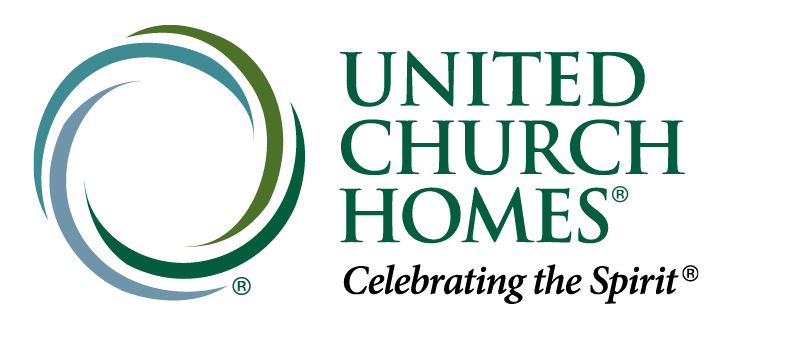
Highlights from this week’s conversation include:
Abundant Aging is a podcast series presented by United Church Homes. These shows offer ideas, information, and inspiration on how to improve our lives as we grow older. To learn more and to subscribe to the show, visit abundantagingpodcast.com.
Ashley Bills 00:07
Hello, and welcome to Ask a NaviGuide, part of the Abundant Aging podcast series, where we talk about aging and family caregiving and how to work through stressful situations with the help of United Church Homes team of NaviGuides. Our NaviGuides have decades of experience helping families work through difficult situations. And today, we have Robin with us who will help us understand billing and the appeals process. Welcome, Robin.
Robin Peconge 00:33
Thank you for having me.
Ashley Bills 00:35
Good to have you. So tell us a little bit about your background with this sort of thing.
Robin Peconge 00:39
So I was a senior health care insurance broker for about 20 years, I worked in claims for a couple years, and I was the billing manager for a home health care for five years before becoming an EPA guy.
Ashley Bills 00:50
Great. That’s awesome. So today, we’re talking about the billing and appeals process with Medicare and managed care, a big subject that probably literally no one really wants to talk about. But today we’re going to unpack some of those questions we might have with that. So we’ve all experienced a situation where we might have to correct a bill or something. But what about when it comes to healthcare? Where do we start? Who do we call all of those things? So, Robin, what sort of situations? Have you seen where there are issues or errors with medical billing?
Robin Peconge 01:24
Okay, well, I would say it’s more with prior authorization, what I see most is when it comes to medical equipment. A good example would be if someone wants a walker that has a seat, those are called rollators. While a lot of times the person will just go purchase one, and then when they get reimbursed for it. What they don’t realize is that that requires a prescription just like your pills, mites, or a needle holster or something like that. So you have to get that prior to purchasing the equipment otherwise, in what what it is, is Medicare and the Medicare Advantage plans, they want the doctors to say why does this person need it, they don’t want just someone going and getting one for convenience sake, they want to show that they’re having problems walking, that they’ve either fallen, or they’ve had therapy that was not able to get to their full potential, whatever the reason may be, there needs to be documentation to show that before the insurance companies will pay for it.
Ashley Bills 02:17
That’s good to know. And I’m sure those things you might walk into a place and find out without getting that, you know, pre off on a rollator Walker. And they say, well, it’s hundreds of dollars, you know, and you weren’t prepared to pay for that. And then it just creates an awkward situation. So yes, it’s good to know. So when we think of charges related to out of network status, is there anything patients can do to recover costs? Or get their insurance company to treat it as an in network charge? Oh,
Robin Peconge 02:50
Yeah, there’s an appeals process. I say this happens most frequently with medications. Maybe the doctors were there to have a brand new medication, the insurance company saying, Well, what about this generic version. And there are reasons I mean, with brand names and generics. But me myself on a typical item, I don’t mind generics. But when it comes to medications, the difference is that they are generic. Technically, some of those ingredients can be just a little bit different than they are with the brand name standard. That’s the reason why they are different. And so that’s where I see that the most and yes, actually, I’d say most of the time, it does get overturned, but it’s still a headache. And it’s still a hassle, because the person might need that medication right now. And they’re having to wait to get, you know, for the doctor to fill that out. And it’s hard. I mean, the doctor sees several patients a day, and for them to take the time to fill that documentation out. Another thing you run into is that primary care doctors may see such a wide age range, that they may not be experienced with what Medicare and Medicare Advantage plans require in their documentation. A lot of times, they might just check off some boxes, they might put one diagnosis and think that’s sufficient, but it is not that Medicare wants to see something written, stating that you evaluated this person for this, and this is what your findings were.
Ashley Bills 04:06
So they want all the information before they make a determination. Yes. Interesting. So I’ve wondered about this my whole life so surely someone else has. But what about if you have an emergency when you’re traveling outside of the US, will your insurance company pick up the bill or you just have to pay that out of pocket?
Robin Peconge 04:28
That can be very tricky. If you have traditional Medicare with their supplements, you probably will not have very many issues being on the claims side of things. And I love Medicare Advantage plans. They definitely have their place in this society and medical coverage, but it is different. So with traditional Medicare, their standard customary fees are pretty straightforward. They don’t require as many prior authorization guidelines and they typically pay quicker. So with Medicare, traditional Medicare, you don’t have any issues, you’d be hard pressed to find a place anywhere in the country that is not in network with them. With Medicare Advantage plans, it can certainly be tricky. If you have a PPO plan, it may take a while, but you, they will still pay for out of network services. If it’s an HMO plan, it just can be very tricky, because HMOs means that there are no out of network benefits. So in a lot of those plans, again, we’ll pay for emergency room urgent care, it’s really when you find yourself in a hospital setting for anything longer than two or three days is where you run into problems.
Ashley Bills 05:37
Gotcha. Interesting. And that’s good to know. Because, you know, a lot of older adults save their traveling, you know, in their retirement years. And so if something would happen, it’s nice to know, kind of not think we’ll ever think about when we’re traveling, you know, what might happen, but it’s nice to have that in the back of our minds. Okay, this is what, what I need to do if something does happen. So let’s talk a little bit about just like a hypothetical situation. So you’ve received in Network Services, you’ve paid your copay, you met your deductible, but you still get charges you didn’t expect. So what are the steps you would take to understand why that would happen? You would
Robin Peconge 06:17
I want to call the number located on the back of your card, Customer Member Services and just ask questions, find out why. And it could be that maybe something was the diagnosis or not coded correctly, there could it couldn’t be that you do have a secondary insurance, and they were not aware of it, those are the most common things that I see. So sometimes before getting too worked up about it, there might be a good reason. So just calling the company trying to get it figured out. There are appeals processes, which again, calling that number, would help you find out what it is that you need to do to get you the proper documentation to fill out. And you may have to then send it to your provider, that sort of thing. So it is a process. But oftentimes there are resolutions that can be had.
Ashley Bills 06:59
Is that very common where where you might have to call and get charges reversed or that reads it a common thing for insurance companies to deal with that?
Robin Peconge 07:07
The most common that I get is either being coded as a preventative, or not having the secondary insurance on file, those are the two common things that I run into very easily resolved that problem is that someone needs to address it right away, because a lot of times if the hospital or the facility has sent it to a collection agency, and it’s actually out of their hands at that point, so you really want to stay on top of it. You want to call them as soon as you can.
Ashley Bills 07:35
Good to know. So in terms of talking with the insurance company or Medicare, how should you treat the representative? Is there any sort of schmoozing that we should be prepared for? Or what is your advice for dealing with them?
Robin Peconge 07:51
Be straightforward, give them as much information as you can. Really, they’re there to help you. They want you to keep their plan, you know, they want to keep you as a member. So no, I’m definitely just trying to be upfront with them. My mom actually when I am on her behalf, if I’m calling for her, she always wants to, you know, to explain that she has a backpack and she can’t leave all these things. And I tried to tell her that this person really I don’t want to say that they don’t care, but it’s not going to make a difference one way or the other for what it is that I’m trying to write.
Ashley Bills 08:19
They don’t need your life story. Now just be transparent. Yeah, it might still not hurt to follow up with like, you know, some flowers or chocolates or something. I’m just kidding. So um, so what information should you bring to the call, I presume like your insurance card? Are there any other things?
Robin Peconge 08:40
Any bills that you’ve received? Certainly, that way you’ll have, you know, any codes that they might want from you that maybe they don’t have billing dates, procedure dates, which again, usually when you receive your bill, it’s itemized. But yes, I definitely have that in front of you to have your insurance card, they usually look you up by your member ID number. So yes, those were the things to have handy. Maybe your doctor’s name and address.
Ashley Bills 09:03
Gotcha. Well, Robin, as always so much information, so full of knowledge, and we appreciate you being with us. So thank you so much.
Robin Peconge 09:10
Well, you’re welcome. It’s my pleasure.
Ashley Bills 09:12
And thank you again for listening to another episode of Ask an ABA guide, part of the abundant aging podcast series brought to you by United Church homes. If you liked the show today, please like, share and subscribe so we can bring you more topics on aging. For more information about the UCH NaviGuide program, please visit uchnaviguide.org And for more information about United Church homes, visit unitedchurchhomes.org. We’ll see you next time.
